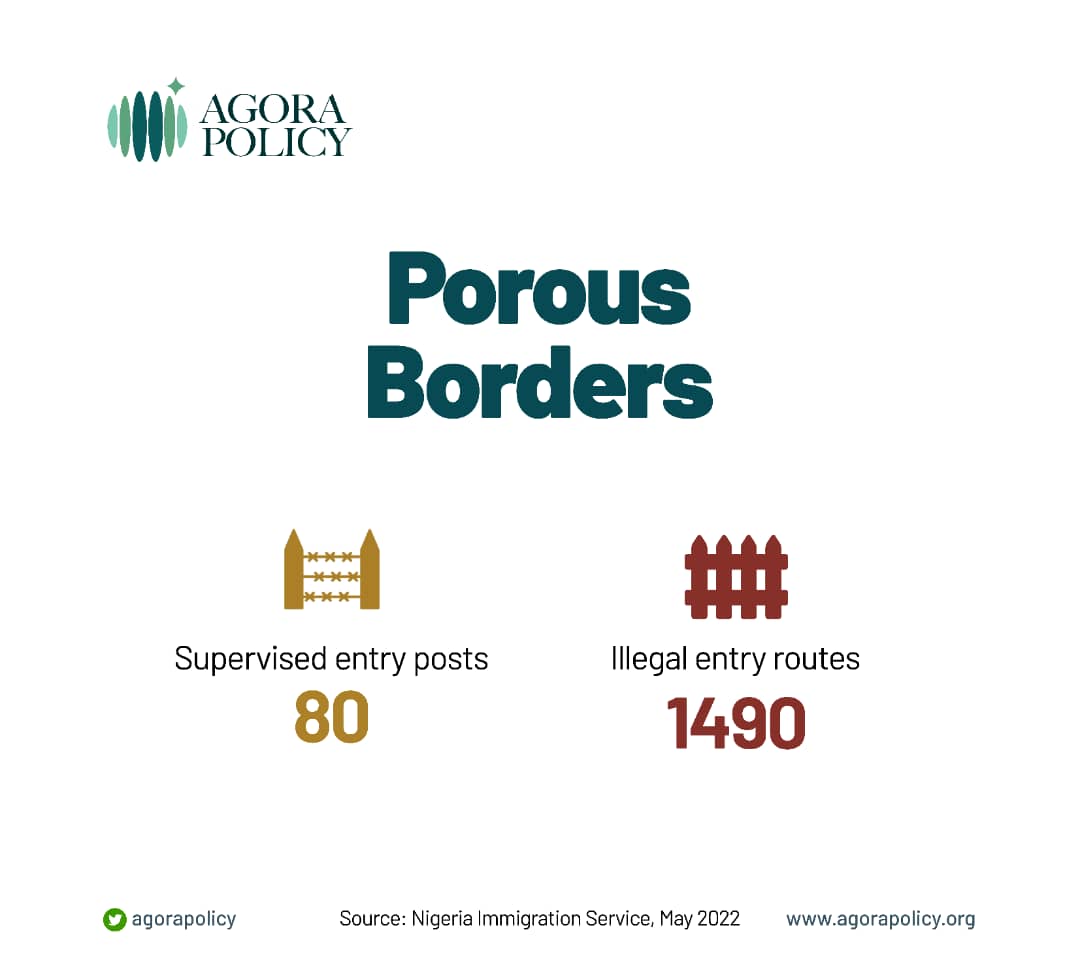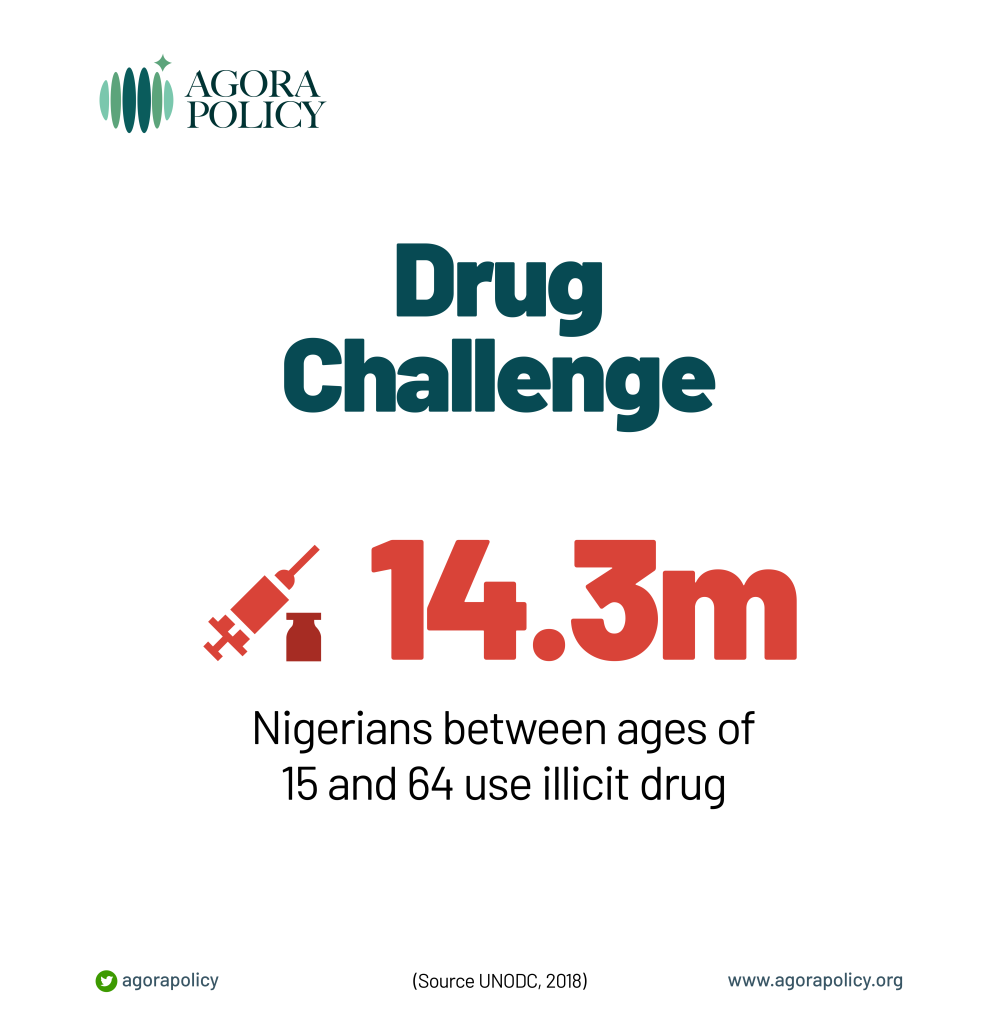By Douglas Okonko
The second issue of The Agora Policy Report, titled Understanding and Tackling Insecurity in Nigeria, was released on Monday, 7th November 2022. The report dissects the types, manifestations and drivers of insecurity in the country and offers far-reaching and sequenced recommendations for combating what it describes as ‘generalised insecurity.’ The report advocates for an approach that goes beyond just enhanced and sustained military offensives. “Current military engagements should be sustained,” the report says. “But the nature, pattern and trend of security challenges confronting Nigeria cannot be dealt with efficiently using military power alone. Addressing only the manifestations of insecurity without tackling its drivers is akin to merely cutting off the tail of a dangerous snake while keeping intact its head and the rest of its body.”
Here are seven takeaways from the report:
- Overhaul of Security Architecture Long Overdue
The security architecture needs to be match with the evolving security challenges in the country. The reports states that: “The current security architecture of Nigeria may have once been effective in tackling the challenges at their time of institution. However, the challenges across the country have evolved significantly. There are new domains of security threats, while smaller and largely benign groups have evolved into well-armed transnational insurgent groups. This means the security and defence structures that worked in prior dispensations are currently struggling to keep up with the evolved challenges. The need for a defence and security sector reform is imperative.”
The report maintains that such a reform should start with a comprehensive and consultative audit of the missions, doctrines, trainings and staffing of all the military, paramilitary and other security forces and agencies in the country to ensure an alignment with current and future security threats. The result of the audit, the report adds, should provide a guide to how to better streamline, resource, staff and coordinate security agencies in the country. The outcome of the comprehensive reform should also incorporate mechanisms for significant boost in the number of security personnel, increased focus on accountability, more respect for rules of engagement and monitoring and evaluation, and greater coordination of intelligence gathering and usage.
- Nigeria Needs a Dedicated Border Force
The report identifies porous borders as one of the key drivers of insecurity in Nigeria. Poorly guarded or unguarded borders make the fight against human trafficking, drug trafficking, contraband smuggling, arms smuggling, cross-border banditry etc., more difficult to win. According to the report, “Nigeria’s security is exacerbated by its porous borders, which allow for unchecked/unsupervised entry into the country”. According to the report, Nigeria has extensive land borders totalling 4,047 kilometres. Nigeria shares 1, 497 kilometres of land border with Niger in the North; 773 kilometers with Benin in the West; 87 kilometers with Chad in the North East; and 1, 690 kilometers with Cameroon in the East. These borders are mostly unsupervised, the report reveals that as of May 2022, there were only 80 manned entry points into the country as against over 1490 illegal entry points. This points to the fact that illegal routes outnumber manned entry points by a staggering 1,645%.

To ensure that the borders are properly manned, the report submits: “We recommend the creation of a border guard force focused on providing border security, as the current role is being performed by the Nigerian Customs Service which considers border security a secondary priority to its primary focus of revenue generation. Nigeria can look at examples such as the Border Security Force and the Frontier Force in India, the Pakistan Rangers in Pakistan, and the Border Security Agency in Malaysia, among others.”
- Women as Force for Peace and Security
The report contends that Nigeria needs to take more advantage of the natural inclination of women for peace and security. According to the report, citing a UN paper, involving women in peace processes increases the probability of achieving peace by 24%. The report states that: “More countries’ militaries are increasing the role of women in defence and security including in places such as Iraq and Afghanistan. Female officers possess certain skills which allow them to be more effective in dealing with the local communities. These include good communication, negotiation, dialogue, trust-building and the provision of other non-kinetic security functions to communities and vulnerable populations.”
Nigeria is yet to catch up on this trend. For example, the report states that as at 2018 women constitute only 9.75% of members of the Nigerian Police Force and calls for the recruitment of more women in Nigeria’s security forces but the creation of women-only units and granting women more strategic and leadership roles. “Policies which focus on empowering women to move past victimisation and into leadership positions can provide the keys to establishing a more peaceful and stable society over time,” the report states. “However, enlisting more women means that safer work environments need to be created for women in security forces.”
- Winning the Hearts and Minds Vital
Strategic communication is an essential element of security that should feature prominently in the planning and strategic decision-making processes of security stakeholders. “Currently, Nigeria’s adversaries dominate the information space,” the report states. “Nigerians are ill-informed and routinely disbelieve information from official sources. Information craft is crucial in addressing targeted narratives for state building. The Forum of Spokespersons of Security Agencies should be revived and anchored in the Office of the National Security Adviser (ONSA) for proactive engagement.” The report recommends that the Office of the National Security Adviser works with the Ministry of Information and the National Orientation Agency to develop a strategic communications framework and operational concept. “This framework and concept should be a comprehensive, joined-up and believable national security narrative aimed at mobilising all of society behind government’s effort at making the country more secure,” states the report.
- Private Security Contractors Should be Engaged
The report also recommends the use of private security contractors but in a specified and controlled manner. The report states that: “It is a known fact that Nigeria’s security personnel are overstretched due to the persistent and widespread nature of current security challenges. This deficiency has allowed insecurity to fester. To relieve the security forces and to enable significant efforts to be applied to degrade the threats, the government should consider inviting private security contractors as it was done shortly before the general election in 2015 [and use them] to confront armed banditry in the North-West and North-Central regions.
“The engagement should be handled through the security forces to assuage concerns in some quarters that the private military contractors are an indication of the non-appreciation by the political class of the security forces’ contribution and sacrifice. Clear objectives and measurement parameters should be set and monitored closely.”
- Better Intelligence Coordination Required
Multiple security outfits have been established to handle various levels of threats in the country but efficient sharing and management of intelligence remains a key challenge. According to the report, there are lapses in coordination, cooperation, and synergy between the armed forces, the security MDAs and the intelligence community in Nigeria. The report adds that the inadequacies within the production of credible intelligence, including the lack of synergy and poor usage of intelligence products, have allowed elements of threats to persist and fester. To curb this, the report recommends the integration of all service intelligence resources and the creation of a national intelligence database that would enable the seamless collection, collation, and dissemination of intelligence to ensure more prompt action on security threats.
- Easy Access to Arms and Drugs Enable Insecurity
The report claims that the proliferation of arms has fueled insurgency, banditry, kidnapping, and armed robbery in the country. To limit the spread of small arms and light weapons, the report recommends the regulation of the local arms industry, enhancement of current government Anti-SALW efforts, better management of weapons by security personnel, and regular arms mop-ups.

The link between drug use and criminal behaviour is correlational and complimentary. Drug abuse can lead to crime, crime can also encourage drug abuse and both behaviours can mutually reinforce each other. The report, citing a UNODC study, states that 14.3 million people in Nigeria between the ages of 15 and 64 years use illicit drugs. The report also revealed that as part of their source of funding, criminal and terrorist groups have taken advantage of such a large craving for illicit substances by establishing drug smuggling networks across the country which exacerbates criminality. The report associates the prevalence of illicit drugs to porous borders and therefore recommends the implementation of tighter border control measures as well as tighter control of access to drugs within the country.
*Okonko is a Research Officer with Agora Policy




